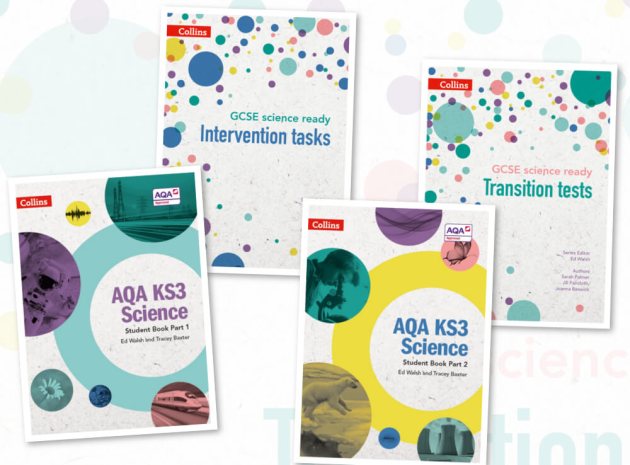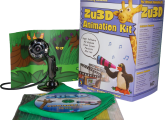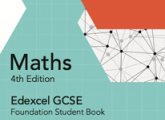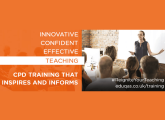Ed Walsh advises two teachers with queries about teaching physics, biology and chemistry at KS3…
I am one of a team of leaders in the science department of a large, secondary academy. Our school has been following developments at Ofsted closely over the past year, and I am delighted that we are completely rethinking curriculum design for first teaching from September 2019. I have been asked to come up with a skeleton, ‘knowledge-based’ scheme of work for KS3 (which, for us, includes Years 7 and 8 only) – and a more senior colleague is doing the same for KS4. It seems to me, however, that we should be working together to plan a journey for students that takes them all the way through from the start of Y7 to their GCSEs, especially given that science is not a subject we permit learners to drop at KS4. Do you think it’s possible to plan an effective KS4 curriculum without some input into what happens at KS3 – or vice versa?
This is a great question and one that quite a few schools are actively exploring. Straight answer to your question – no. Not if it’s to be effective.
One of the most powerful questions you can ask is, “Is our KS3 course doing its job in getting our students ‘GCSE ready’? There’s too much in the GCSE courses to risk students starting them without a good foundation. Science is a five-year course.
I’m interested though in what you mean by a knowledge based course; in my experience that means different things to different people.
You might say, for example, that one of the outcomes is that students should ‘know the difference between contact and non-contact forces’. How about ‘know how to set up and use a microscope’ or, ‘know how to construct a conclusion from evidence’? This procedural knowledge, looking at the GCSE exams, should also be well represented at KS3.
Maybe a good starting point is to think of an entry profile into GCSE and consider what that might consist of. Identify which concepts, processes, ideas and skills students should be able to draw upon to successfully access a GCSE course, then look to incorporate this into KS3.
There’s a case for including maths and literacy skills; it’s pretty risky to start students on a GCSE course without them being able to construct sentences that convey scientific ideas, or for them to think that science doesn’t make use of numeracy.
A final thought – one of the messages from this summer’s exams is that students sometimes struggle to apply ideas to novel contexts (try Googling ‘carrotgate’). I think a good KS3 course would make it clear that this is part of being a scientist.
I’ve been teaching physics and chemistry in a comprehensive school in the North of England for around seven years now, and in that time I have noticed a definite reduction in enthusiasm for my subjects amongst students – quite possibly related to the fact that they are now having to tackle much more difficult and complex content, much earlier. By way of countering this, I would like to introduce an annual ‘science fair’ for KS3 students, along the lines of those that often take place in American high schools – encouraging the learners to plan, research and present their own projects, either singly or in small groups. I anticipate the whole process taking several weeks, in school and at home; how can I ensure that real, deep learning is happening alongside the fun?
I think this is a really interesting question and an enterprising solution. You’re right to identify attitude and motivation as being important but also that you have to ensure that deep learning is taking place.
If you don’t get this right there’s the risk that some students will spend inordinate amounts of time on the presentation of highly coloured posters that don’t then stand up to much scrutiny.
I think one of the key questions is the selection of the questions to explore.
One source is the extension activities in the AQA KS3 Syllabus; these would give you examples such as ‘How can we classify substances which behave unusually as solids, liquids or gases?’, ‘How can we compare the pros and cons of fuels in terms of their products of combustion?’ and ‘What are the benefits and risks of a technology for improving human movement?’
These are rooted in concepts that are central to KS3, yet if you had teams of students each exploring a different question, it would probably feel quite different from a more conventional set of lessons.
Look carefully too at the success criteria used in judging the efforts.
These could be based on themes from Working Scientifically such as ‘How well was the investigation planned?’, ‘How well was the data managed and displayed?’ and ‘’How well were scientific ideas used in the conclusion?’ Students should be aware of these from the outset and supported in considering them.
There could also be other outcomes from the activities, such as each team being required to write and illustrate a short article showing what they learned – this could be used in wall displays and in an online journal, for example. This could be a great way of developing communication skills.
Ed Walsh is a freelance consultant, specialising in science consultant, specialising in science education. A teacher for 20 years and a team leader for 12 of those, he now writes and edits curriculum materials, designs and delivers CPD and works with science departments to improve the quality of their provision. Find out more at collins.co.uk/SecondaryScience or get in touch at edmundwalsh@hotmail.com.










